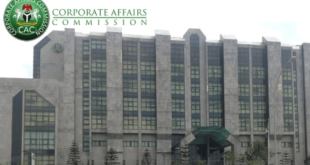The Attorney General of the Federation (AGF) and Minister of Justice, Mr Abubakar Malami (SAN), on Thursday inuagurated a 13-member Technical Committee on the Review of Borstal Institutions and Remand Centres Act 2004.
The review, according to Malami, is to make the law more effective and in conversant with current laws and times.
Speaking at the inuaguration at the headquarters of the Ministry of Justice in Abuja, Malami, who was represented by the Solicitor General of the Federation and Permanent Secretary, Ministry of Justice, Mrs Beatrice Jedy-Agba, lamented that the rights of millions of African children are daily violated without any effective remedy.
The AGF further observed that Nigeria is witnessing an alarming increase in crime and criminal activities involving juveniles that now require effective law to checkmate.
“However, for the sustainable reformation of the Nigerian Juvenile Justice System, it has now become imperative to review the Nigerian Borstal Institute legal framework and bring it up to conformity with the Child Right Act, 2003, the Administration of Criminal Justice Act, 2015 and the Correctional Services Act, 2019,” the minister said.
Meanwhile, a former Chief Judge of the High Court of the Federal Capital Territory (FCT) and Chairman of the Presidential Committee on Correctional Reform and Decongestion, Justice Ishaq Bello, has lamented the occupation of Borstal homes by overage individuals including those who are already married with children.
He recalled how his committee embarked on various visits to the three borstal institutes in the country with a view of decongesting the already crowded homes.
He said: “Our recent assessment of these institutes revealed the shortfalls of the present law. Contrary to the provisions of the Borstal Institutions and Remand Centres Act 2004, which allows for only the institutionaltizations of offenders between the ages of 16-21, most children in the borstals are either below or above this age bracket. Most of them seen at the Ilorin Borstal Institute were in their 30s and 40s with wives and kids.
“Additionally, children are not classified on the basis of their age, physical and mental health, length of stay, degree of delinquency and character. More so, factors like sequence of the delinquency, possibilities of functioning as a contamination risk and requirements of custody, juvenile educational and vocational training needs of children, their background, possibilities of their social adjustment, their prospects after release, as well as rehabilitation are not taken into consideration.
“Currently, there are only three borstal institutions in Nigeria. However, the Nigerian Correctional Services Act, 2019 has provided for the establishment of borstals in each state of the country. The Act has also prohibited Custodial centres from admitting children under the age of 18.”
Bello, however, stressed that: “The time has come to reform the borstal institutions to achieve the goals for which they were established. For example, effective public interventions in child welfare, child protection, criminal law/family law and family care can help to address juvenile delinquency.”
 The Commerce Africa African Reneissance
The Commerce Africa African Reneissance




